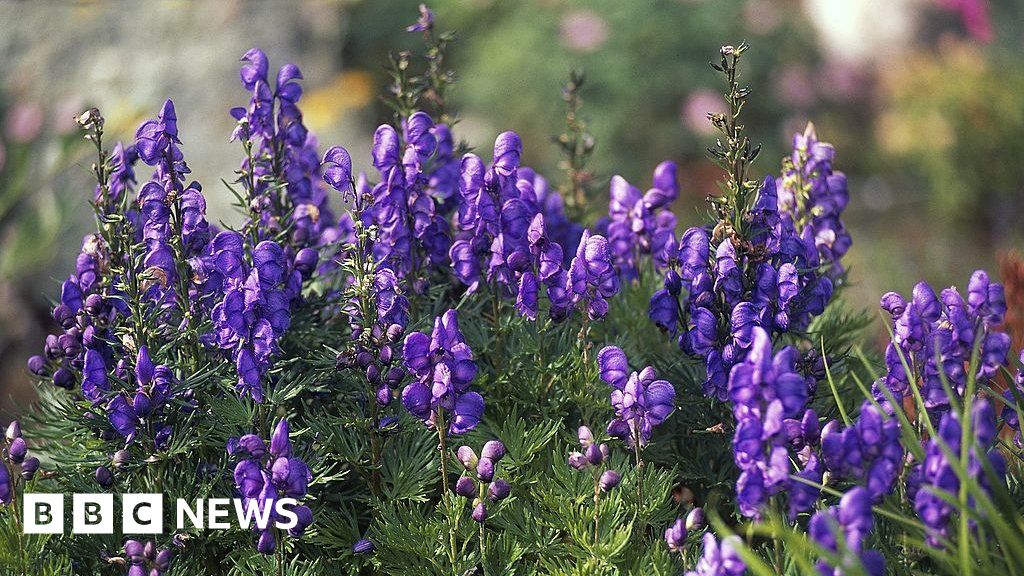 Getty Images
Getty ImagesDiners who felt sick after eating at a restaurant outside Toronto likely ate food contaminated with toxic aconite, Canadian health officials say.
Twelve people were hospitalized Monday, four of whom required intensive care.
Health officials said they believe the toxin came from two powdered products that have since been removed from shelves.
Aconite, a toxic plant, can seriously affect the nervous system if ingested.
York Region Public Health says diners became ill after eating a dish at Delight Restaurant & BBQ, located north of Toronto.
The diners showed up at the nearby hospital with symptoms resembling those of aconite poisoning. Most have since recovered, while others remain ill in hospital but their condition is improving.
Authorities said they believed the accidental poisoning was caused by a contaminated spice.
They have since sent food and other samples to a laboratory for confirmation. The restaurant cooperated with the investigation.
Two products – a galangal powder common in Asian cuisine and a radix aconiti kusnezoffii powder traditionally used in Chinese medicine – have been removed from store shelves.
 York Region Public Health
York Region Public HealthAconite, also known as sparrow’s bane, wolf’s bane, or devil’s helm, is a common plant found in gardens and mountainous regions of North America, Europe, and Asia.
Health officials said symptoms consistent with aconite poisoning are:
- Numbness of the tongue or limbs
- Diarrhea
- Stomach cramps
- Nausea
- Vomiting
- Headache
- Irregular or fast heartbeat
The plant has been used in traditional Chinese medicine for millennia, although it is processed before ingestion to remove toxins.
Dr. David Juurlink, an internal medicine physician and toxicology researcher in Toronto, said the problem is that, if not treated thoroughly, toxic pieces of the aconite will remain.
“The usual story is that someone takes [aconite] for medical reasons, and they take too much or it wasn’t treated properly, and they die,” Dr. Juurlink said.
He said that one teaspoon of pure aconite poison was enough to kill several people.
Several cases of accidental or intentional poisoning have made headlines in the past.
Earlier this year, two people became ill in British Columbia after eating a sand ginger powder product contaminated with aconite.
In 2017, a San Francisco woman died after consuming herbal tea containing traces of aconite.
The challenge for doctors, Dr. Juurlink said, is that there is no antidote for aconite poisoning.
“The treatment is primarily supportive,” he said, such as hooking patients to breathing machines or trying to support their heartbeat in a specialized intensive care unit with a bypass machine.
He said people who suspect they may have accidentally ingested aconite “can’t get to the hospital fast enough.”

“Freelance communicator. Hardcore web practitioner. Entrepreneur. Total student. Beer ninja.”








